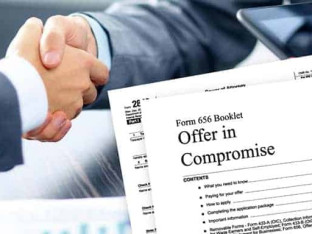Understanding Your Rights: What to Do When Your Texas Landlord Ignores Repair Requests
Dealing with maintenance issues in a rental property is often an unavoidable part of renting a home. However, when your landlord fails to respond to essential repair requests, it can create an uncomfortable or even unsafe living environment. For tenants in Texas, it is important to understand that the law provides mechanisms to protect your rights and to compel landlords to fulfill their repair obligations. This comprehensive article will guide you through the steps to take when your landlord ignores repair requests, how to document your communications, the legal remedies available, and the best practices for resolving these issues effectively.
The Legal Framework Governing Repairs in Texas Rental Properties
In Texas, the rights and duties of tenants and landlords regarding property repairs are governed primarily by the Texas Property Code, specifically under Subchapter B of Chapter 92. This statute outlines the landlord’s responsibilities to repair and maintain the premises and the procedures tenants must follow if repairs are needed. Understanding this legal framework is crucial for any tenant facing repair issues to ensure their requests are taken seriously and handled appropriately.
Landlord’s Responsibilities for Repairs
Under Texas Property Code § 92.052, a landlord has the duty to make a diligent effort to repair or remedy any condition that materially affects the physical health or safety of an ordinary tenant. This includes issues such as plumbing problems, heating or air conditioning malfunctions, electrical hazards, and structural damages. The landlord’s obligation is not only to provide a habitable living space at the beginning of the lease but also to maintain it throughout the tenancy.
It is important to note that landlords are not required to fix damage caused by the tenant’s negligence. The law focuses on repairs necessary to keep the property safe and livable.
Tenant’s Role: How to Properly Request Repairs
Tenants must follow a specific procedure to ensure that repair requests are properly communicated and documented. Texas law requires that tenants send a written notice to their landlord specifying the needed repairs and providing a reasonable opportunity for the landlord to fix the issues.
- Send a written repair request: This notice must describe the condition that needs repair and how it affects health or safety.
- Keep a copy of the repair request: Retain copies of all correspondence for your records, including certified mail receipts if applicable.
- Allow a reasonable time for repairs: Texas law does not prescribe a fixed period, but courts generally consider 7 days reasonable for most repairs affecting habitability.
When Your Landlord Fails to Respond: Legal Actions Available
If the landlord fails to make repairs after receiving proper notice and reasonable time has elapsed, Texas law provides tenants with several options.
1. Repair and Deduct
Texas Property Code § 92.0561 allows tenants to make the necessary repairs themselves and deduct the cost from future rent payments, provided that the tenant follows the law’s requirements. The cost of repair must be reasonable and directly related to restoring safety or habitability.
2. Terminate the Lease
If the property becomes uninhabitable due to the landlord’s failure to repair, tenants may have the right to terminate the lease early without penalty. This action requires strict adherence to the legal process, including giving the landlord proper notice and allowing time to cure the issues.
3. Seek Legal Remedies through the Courts
Tenants can also pursue damages or specific performance through the court system if repairs are not made in a timely manner. Consulting with a qualified attorney to evaluate your case is highly recommended before proceeding with litigation.
The Importance of Documentation: Your Primary Protection
One of the most critical aspects of navigating repair disputes is thorough documentation. Keeping detailed records of all communications, repair requests, photographs of the damage, receipts for any repairs paid by the tenant, and other relevant documents serves as evidence to protect your rights.
- Always send repair requests in writing, either by certified mail or email.
- Keep copies of all correspondence with your landlord.
- Take photos or videos of the damage to demonstrate its condition.
- Save receipts if you pay for any repairs yourself.
This documentation is crucial if you need to take further legal steps such as repair and deduct or lease termination. It also aids in resolving disputes amicably by providing clear evidence of your communications and actions.
Practical Tips for Tenants in Texas
Navigating repair issues with unresponsive landlords can be challenging. Here are some practical recommendations to help you manage the situation effectively:
- Be polite but firm in your communication with the landlord.
- Send all requests in writing and request a confirmation of receipt.
- Keep timelines realistic, understanding that some repairs may take longer.
- Consult local tenant rights organizations for additional support and guidance.
- If necessary, seek legal assistance to ensure your rights are protected under Texas law.
How "Legal Marketplace Consultant" Can Assist You
At Legal Marketplace Consultant, we specialize in assisting tenants and landlords alike to understand their legal rights and responsibilities. If your landlord is ignoring vital repair requests in Texas, our team can provide you with knowledgeable guidance tailored to your situation. We help you draft proper notices, navigate repair and deduct procedures, and pursue legal remedies if necessary.
Don’t let maintenance issues go unresolved and affect your quality of life or safety. Contact us today through the communication link in our bio or send us a private message to get personalized support and professional advice.
When your landlord neglects repair requests, understanding your rights under Texas law empowers you to take effective action. Following the proper written notification procedures, documenting all communications, and knowing your legal options such as repair and deduct or lease termination are essential steps to protect yourself. Remember, maintaining a safe and habitable home is not just your comfort, but your legal right. For tailored assistance and to ensure your rights are fully upheld, contact Legal Marketplace Consultant for expert help.
Legal Marketplace Consultant — Your trusted partner in navigating tenant and landlord law. We provide comprehensive legal support to protect your rights and ensure your rentals are safe and well-maintained.































